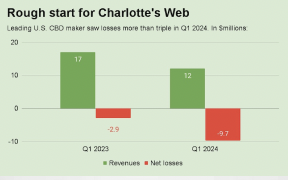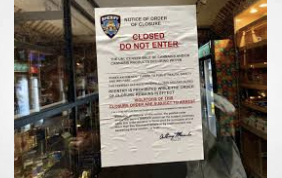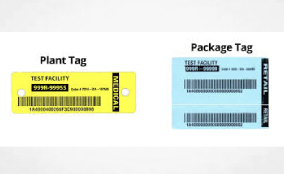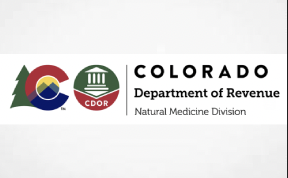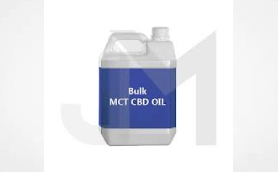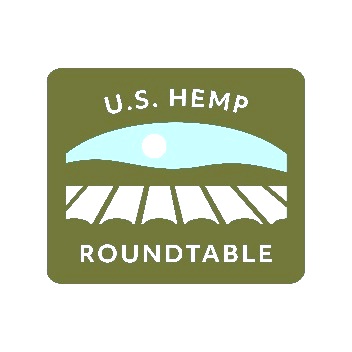HEMP 2017:
THE YEAR IN REVIEW
It’s been a year of extraordinary and unprecedented progress for industrial hemp. Below we summarize some of the highlights from the past year, with an eye toward 2018, which is poised to be even brighter:
-
H.R. 3530, the Industrial Hemp Farming Act, Released: On July 28, a bi-partisan, multi-ideological coalition, led by Rep. James Comer (R-KY), introduced H.R. 3530, which would permanently remove industrial hemp from the purview of the Controlled Substances Act (CSA). Once enacted, the bill will catapult the agricultural commodity into the mainstream of U.S. commerce and offer U.S. farmers significant new economic opportunity. (Click here for the full text.) Industry groups, including the influential American Farm Bureau Federation and National Farmers’ Union, have endorsed the bill as a key agricultural priority. Early 2018 should bring House hearings on the bill, as well as the introduction of a Senate companion by Sens. Mitch McConnell (R-KY), Rand Paul (R-KY), and Ron Wyden (D-OR). We are very optimistic about the Industrial Hemp Farming Act becoming law in 2018.
-
Formation of the U.S. Hemp Roundtable: In February, hemp industry leaders formed the U.S. Hemp Roundtable, a new national advocacy group whose mission is to promote the full and permanent legalization of industrial hemp, as well as to help develop strong professional practices and standards for the industry. By year’s end, the Roundtable involved more than two dozen firms from across the country, at each link of the hemp supply and sales chain, and boasted the ex officio membership of all the industry’s major grassroots organizations. (See list at left.) For more information on the Roundtable, and how to join us in 2018, click here.
-
Roundtable Recommends Amendments to H.R. 3530: While the Roundtable is deeply grateful for the leadership and diligence of H.R. 3530’s sponsors, it also sees room to improve the bill and strengthen protections for hemp farmers and businesses. After an intensive process, the Roundtable proposed a list (click here) of recommended amendments. After intense lobbying efforts in 2017, we expect to see key items from our agenda introduced as formal amendments in the House, and our recommendations will likely serve as a framework for the Senate companion bill.
-
Roundtable Completes Phase One of Guidance Plan Program: Another key Roundtable mission is the seeding and infrastructure development of an independent, self-regulated organization (SRO), including the drafting of regulatory-acceptable specifications and standards. Phase One of the project was completed in 2017, and Phase Two begins in January. The Roundtable plans to launch the SRO in 2019. Click here to read the first Guidance Plan report of the Roundtable’s Technical Committee, which also shares the program’s objectives for the coming year.
-
DEA’s Position on Hemp Legality Appears to Soften…Somewhat…Sort Of: 2016 closed with the dispiriting issuance of the new DEA Rule on “Marihuana Extract,” which in combination with the earlier issuance of the multi-agency Statement of Principles, signaled an extralegal effort by DEA to undermine the emerging hemp industry. These efforts were met with fierce objections by hemp’s congressional supporters, and a lawsuit by the Hemp Industry Association (HIA). While some DEA spokespeople continue to inaccurately classify all industrial hemp and hemp products as controlled substances, there have been a few encouraging developments:
-
In a June response brief filed in the HIA lawsuit, DEA conceded that the Rule does not affect materials covered by the Farm Bill. DEA is very clear on this point: The Rule “does not purport to override the [Farm Bill]” or to affect materials “properly within the scope of the [Farm Bill].”
-
In a handful of public statements this year, DEA spokespeople have declared that enforcement of hemp products is not an agency priority. See the Chicago Tribune (“DEA says it’s got bigger issues to focus on…DEA’s primary concern is addressing the opioid crisis that is affecting the United States. CBD oil/hemp plant enforcement is not where the DEA is prioritizing its resources.”) and WTHR Indianapolis (“We are in the middle of an opioid crisis in this country. That’s [DEA’s] biggest priority right now…People are not dying from CBD…Are we going to get in the middle of that? Probably not.”)
-
Despite these developments, behind the scenes, hemp companies continue to report improper indirect DEA interference with legally authorized commerce – including disruption of banking and shipping relationships, as well as the border seizure of products, such as hemp seed oil, that have been legally imported for decades. We encourage you to report any such actions to the Roundtable.
-
USDA Confirms the Legality of Interstate Sale of Farm Bill Hemp: DEA’s mixed messages about the legality of hemp grown in Farm Bill states prompted the National Hemp Association to facilitate a letter to the Pennsylvania Department of Agriculture from USDA Acting Under Secretary Ann Bartuska, which confirmed the protections of the Farm Bill and Omnibus Law. In pertinent part, USDA stated: “We think it is clear that section 7606 [of the Farm Bill] contemplated the sale and transport of industrial hemp for purposes of the pilot programs authorized by section 7606 under a limited set of circumstances; namely, those involving the study of industrial hemp marketing.”
-
International Organizations Reject Restrictions on Cannabidiol (CBD): The hemp-derived CBD industry received an enormous boost in September, when the World Anti-Doping Agency dropped CBD from its list of prohibited substances. An even bigger development occurred in November, when the World Health Organization’s Expert Committee on Drug Dependence issued a report opining that naturally occurring CBD is safe and well-tolerated in humans (and animals), and is not linked with any negative public health concerns. Furthermore, the Organization concluded that CBD does not induce physical dependence and is not associated with abuse potential: “To date, there is no evidence of recreational use of CBD or any public health related problems with the use of pure CBD.” While these declarations are not binding on U.S. law or public policy, the pronouncements of these respected international agencies could be very influential in the development of stronger U.S. public policies.
-
FDA Issues New Warning Letters on CBD, but Limited to Medicinal Claims: While FDA’s 2015 website posting “FDA and Marijuana: Questions & Answers” has caused considerable angst in the industry – in part because FDA tentatively concludes that CBD cannot be sold as a dietary supplement – to date, FDA has only issued Warning Letters to those CBD companies that have made medicinal claims about their products and/or false claims about their CBD content. In November, FDA issued its latest set of Warning Letters, which focused on CBD products being marketed as a treatment for cancer. The Roundtable strongly urges companies in the hemp space NOT to make medicinal claims about their products.
-
H.R. 4711, the Industrial Hemp Banking Act, Released: Just in December, Rep. Andy Barr (R-KY), joined by Rep. Jim Himes (D-CT), introduced H.R. 4711, an effort to help deal with a continuing problem for our industry: assuring financial institutions that it is legal to engage in transactions involving hemp. Upon the advice of the Roundtable, Rep. Barr included language that extends protection to third parties down the supply chain that use Farm Bill hemp, as well as companies that engage “in commerce with industrial hemp products that are exempted from the definition of a controlled substance under the [CSA].” The latter provision contemplates hemp transactions in the wake of H.R. 3530 and/or replacement of the pilot program regime by a permanent exemption of hemp from the CSA.
-
Rollercoaster Ride for Hemp Progress in the States: At the state level, momentum mostly moved forward in 2017. Approximately 25,000 acres were grown as part of states’ agricultural pilot programs. (Click here for Vote Hemp’s 2017 U.S. Hemp Crop Report.) Now, thirty-four states authorize the growth and cultivation of industrial hemp for commercial or research purposes; Wisconsin joined the party in November with a very hemp-friendly, comprehensive new law. Meanwhile, reacting to uncertainties and law enforcement concerns, many states, such as Kentucky and Tennessee, strengthened their laws to clarify the legality of hemp extracts. Pennsylvania got its agricultural pilot program off the ground, while other states expanded existing programs. By way of contrast, scattered law enforcement actions against hemp products, usually involving hemp-derived CBD, have raised concerns for the industry, with the most problematic declarations coming from the Attorneys General of Indiana and Nebraska. The upside, however, is that as CBD becomes more and more popular, these enforcement actions and statements have spurred influential hemp supporters to enact stronger state legislation. Roundtable members across the country are leading efforts that will hopefully bear fruit in 2018.
For more information on the U.S. Hemp Roundtable, or on the progress of the hemp industry in 2018, contact the Roundtable’s General Counsel, Jonathan Miller, at (859) 244-3218 or [email protected].
Paid for by U.S. Hemp Farming and Business Roundtable, Inc., 250 West Main Street, Suite 2800, Lexington, KY 40507

